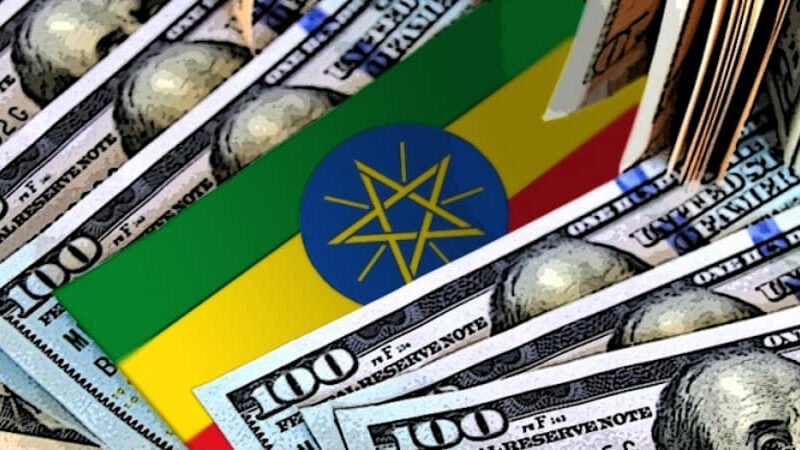By Comr Amos Kalu
The National Bank of Ethiopia unveiled new plans in May to let foreign competition enter the nation’s banking industry. The state-owned Commercial Bank of Ethiopia currently controls the nation’s banking sector. According to a 2019 estimate by Cepheus Growth Capital Partners, an investment management company with headquarters in Addis Ababa, the bank holds 62% of the country’s assets and deposits. There are 29 banks in total in the nation, all of which are privately owned.
Ethiopia intends to allow foreign competition in the nation’s banking industry. What does this mean for businesses and people?
However, the National Bank, which is also responsible for regulating banking in Ethiopia, has vowed to boost competition in the industry. In the next five years, the National Bank plans to grant between three and five licenses to foreign banks, according to vice governor Solomon Desta. Desta stated that there are many ways for foreign investors to enter the Ethiopian market, including by creating local subsidiaries or joining forces with Ethiopian businesses.
The action is being taken as the Ethiopian government, led by Prime Minister Abiy Ahmed, works to liberalize important domestic markets in an effort to draw in more foreign investment and spur faster economic growth. Safaricom, a multinational corporation based in Kenya and listed on the Nairobi Securities Exchange (NSE), received a mobile money service license from the National Bank in May. The state-owned service Telebirr now faces significant competition as a result of this license, which was the first to be granted to a foreign company to provide mobile money services.
Increased liberalization
The Ethiopian government has looked into additional options for liberalizing the domestic market. Ahmed has already vowed to privatize the telecommunications sector, and Ethiopia Investment Holdings, the country’s new sovereign wealth fund, has stated that it plans to launch the Ethiopian Securities Exchange (ESX) within the next two years. Increased competition in Ethiopian banking is a crucial component of the larger effort to bring about long-lasting economic change in the nation.
African Business is informed by Mirkarim Yakubov, chief financial officer at Addis Abeba-based asset management company 54 Capital, that “the move is quite a significant one.”
“Compared to the rest of Africa, Ethiopia is one of only a few [countries] that does not have an open financial sector, that is not open to foreign investors and foreign banks,” he claims. “In my opinion, it’s a very important step toward liberalization, opening up, and fostering competition in the financial sector. Up until now, no one has challenged the local banks.
According to many metrics, Ethiopian banks have performed relatively poorly, possibly in part due to this lack of competition. Despite having one of the fastest-growing economies in Africa, only a third of Ethiopians have a bank account, which is significantly less than the regional average and lower than neighboring Kenya and Rwanda.
Additionally, Ethiopian banks have frequently shown reluctance to lend money. According to reports, only 10% of Ethiopians borrow money from financial institutions. In Yakubov’s opinion, “some of the established banks are quite nervous that, when the foreign banks come, they will offer formidable competition, because of the technology and financial strength that they possess.”

Incumbent influence
He also points out that there will be a number of obstacles for foreign banks to overcome in order to gain a foothold in the local market once they do arrive.
There may be lucrative opportunities available for foreign banks that choose to take advantage of Ethiopia’s efforts to liberalize the banking sector. Ethiopia, the second-most populous country in Africa after Nigeria, has a sizable unbanked population. Due to the coronavirus pandemic and the civil war in the Tigray region, economic growth rates have slowed, but they are on their way back up to double digits. Large pan-African financial institutions in Kenya and South Africa have a great chance to enter Ethiopia and “capture the market,” according to Yakubov.
Additionally, there is hope that the arrival of foreign banks in Ethiopia will help to lower restrictions on international trade and investment. The perceived risk of investing in Ethiopia in the eyes of foreign investors may decrease with the development of a more sophisticated and competitive banking system.
A problem with foreign reserves
In turn, this would assist in resolving Ethiopia’s serious foreign reserve crisis. Ethiopia’s central bank has imposed strict restrictions on the use of foreign currencies in local transactions as a result of the country’s growing current account deficit and diminishing reserves. The lack of US dollars in the nation is also making it harder for the government to pay off its debt in US dollars. This is especially true given that higher international interest rates and a declining Ethiopian birr have made it more expensive to do so, increasing concerns about a default. These worries would be eased and the Ethiopian economy would be placed on a stronger and more sustainable footing by foreign investors and their much-needed US dollars.
Foreign banks’ entry into Ethiopia could directly benefit Ethiopians, even though it is more likely that they will first try to serve the country’s corporate market before providing retail banking services. Services should be of higher quality and there should be more capital available for lending as a result of increased competition. It ought to increase the number of people who can use formal banking services. By making mortgages more accessible and affordable, foreign banks might even end up playing a crucial role in the nation’s housing crisis.
Abiy Ahmed declared in a speech from the previous year that “We will bring foreign banks because we need additional wealth and hard currency.” He will be hoping that both of these things will be happening as he prepares his nation for a new phase of financial liberalization.














